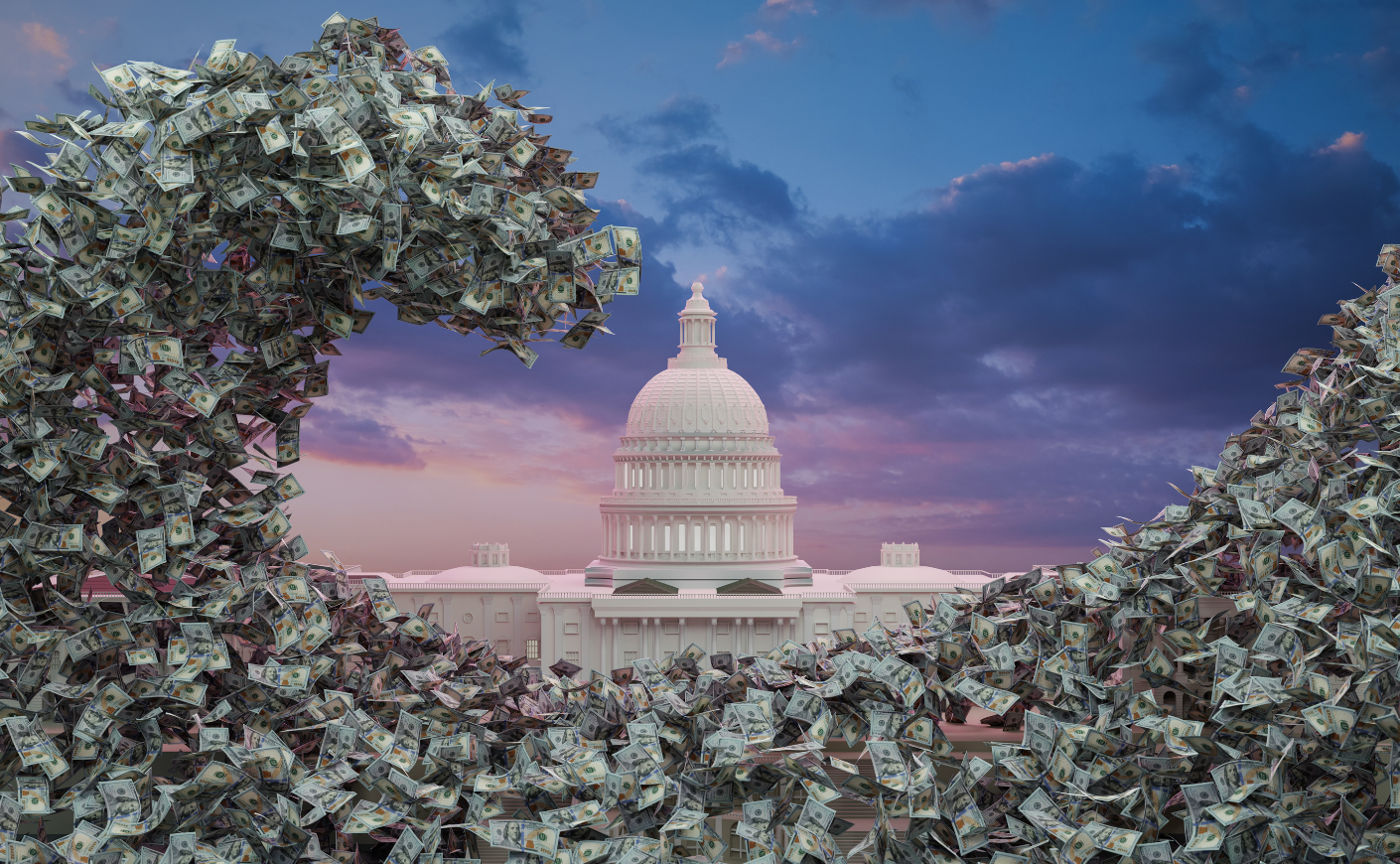Here’s how non-politicians will feel the impact.
As leaders in Washington struggle to make a deal, the U.S. is getting dangerously close to defaulting on its debt. Treasury Secretary Janet Yellen warns that without additional borrowing authority, the U.S. could run short of cash to pay its bills as early as June 1. On top of sending shock waves through the global economy, it could affect many Americans right at home.
Veterans, seniors, and federal employees are just a few of the people who could be impacted if Congress fails to raise the debt ceiling. The circumstances are complicated, but essentially, raising the ceiling would authorize the government to borrow more money to fund spending it has already approved.
While the economic pain will be felt in most states, the financial firm Moody’s Analytics warns that a prolonged debt breach will be especially problematic in areas with a large federal government presence, including everywhere from D.C. and Virginia to Hawaii and New Mexico.
“There is no good that comes from a default,” Marine Corps veteran Cole Lyle told NPR. “Either to veterans, to active-duty service members, or other Americans that rely on benefits from the United States government.”
Here’s a closer look at the states that could stand to lose the most from this default — and some of the larger implications.
Which states will be hardest hit if the U.S. defaults on its debt?
For some areas, the impact of a debt breach will be almost immediate. Moody Analytics says Washington, D.C., where one in four jobs is tied to the federal government, is the “poster child” for financial ruin if the U.S. defaults. But the East Coast is obviously not the only part of the country at risk: There are 45 counties across the country, including the South and Midwest, where at least one in 20 residents is a federal employee.
Beyond the nation’s capital, there’s also concern for states with large federal facilities, such as national laboratories or military bases. This includes Hawaii with 11 military bases, Alaska with its large swath of federal land holdings, and New Mexico, which is home to Los Alamos National Laboratory.
“While the public sector typically serves as a stabilizing force, in the case of a breach it supercharges its economic fallout,” Moody’s stated in its report.
Meanwhile, states like Arizona, Florida, and Nevada, which rely on tourism, could all experience “heavy job losses,” as could South Carolina and Michigan, which are dominated by the auto industry. In the case of a prolonged breach of the debt ceiling, Moody’s Analytics estimates that unemployment could got as high as 9 percent in Alabama, Illinois, Ohio, and Mississippi, while topping nearly 11 percent in Michigan.
But even if lawmakers quickly respond and a default is short-lived, the repercussions could be dire on a national scale, potentially plunging the economy into a recession. In this worst-case scenario, 1.5 million people would lose their jobs, pushing unemployment from 3.4 percent to 5 percent.
Who will be impacted the most by the breach?
More than 2 million federal civilian workers and roughly 1.4 million active-duty military members may not be paid on time. Federal government contractors could also face delays in receiving their paychecks, which could in turn affect their ability to pay their workers.
A breach could also affect certain government benefits that so many Americans have come to depend on. For instance, the U.S. is scheduled to pay $25 billion in Social Security benefits on June 2, but retirees worry about what will happen if officials aren’t able to cover these costs. After all, many Americans don’t have pensions to fall back on, and they instead must rely on Social Security to help cover vital costs like their mortgage or food.
Veteran benefits could be affected, too: The government is scheduled to pay $12 billion in military and civilian retirement benefits on June 1. If these payments are delayed at all, those with little to no savings will be forced to turn to credit cards, which often carry high-interest rates, making debt hard to pay back.
What do lawmakers need to do?
Congress and the White House have until the end of the month to make a deal. But there have been a number of sticking points during negotiations, including budget caps. Republicans want to set limits on annual government spending and implement stricter work requirements for those on food stamps. These moves have gotten staunch pushback from Democrats and President Joe Biden.
These disagreements underscore some fundamental ideological differences. For instance, Biden has called for reforming the tax system to account for government revenue, which would include closing tax loopholes and ensuring wealthy Americans pay “their fair share.” Meanwhile, House Speaker Kevin McCarthy, who is against any tax hikes, argues that “the problem is not revenue, the problem is spending.”
Despite these hurdles, both sides remain optimistic that they’ll ultimately reach an agreement following a “productive” and “professional” meeting at the White House on Monday. McCarthy said he’ll continue to work on passing a bill, even if that means keeping the House in session over the Memorial Day weekend. “Don’t give up on us,” he told reporters after his latest meeting with Biden.








